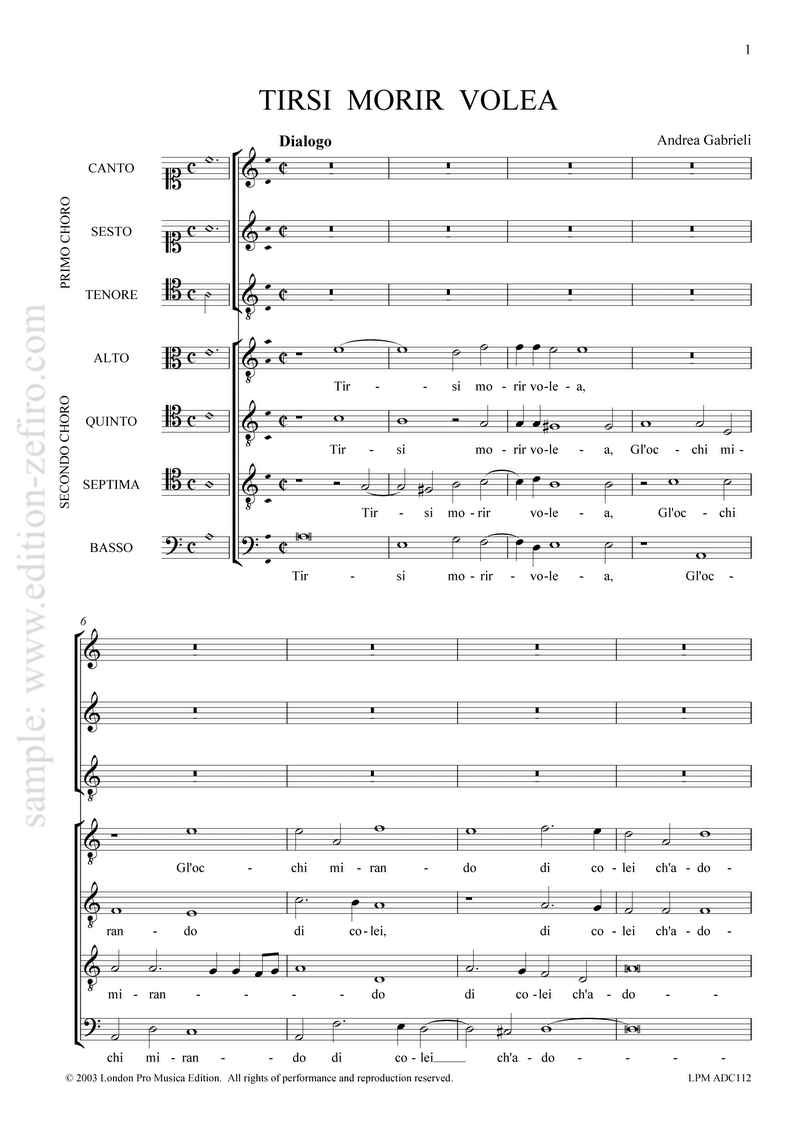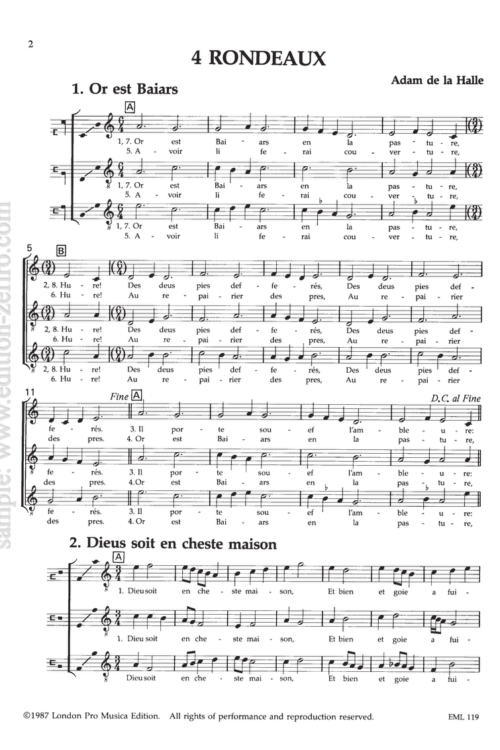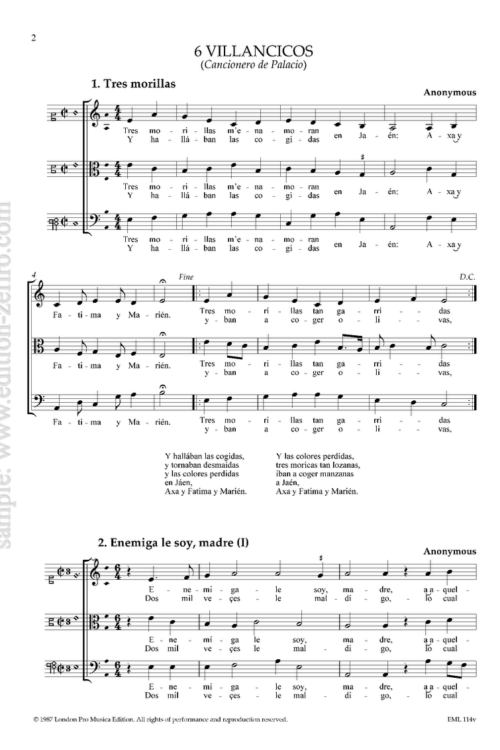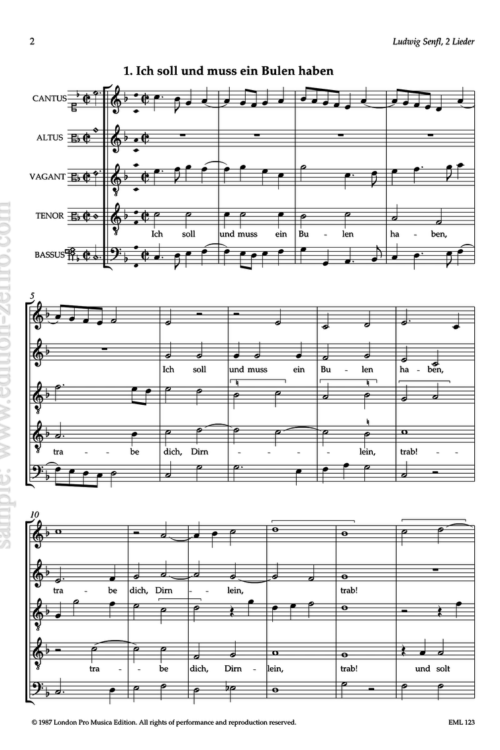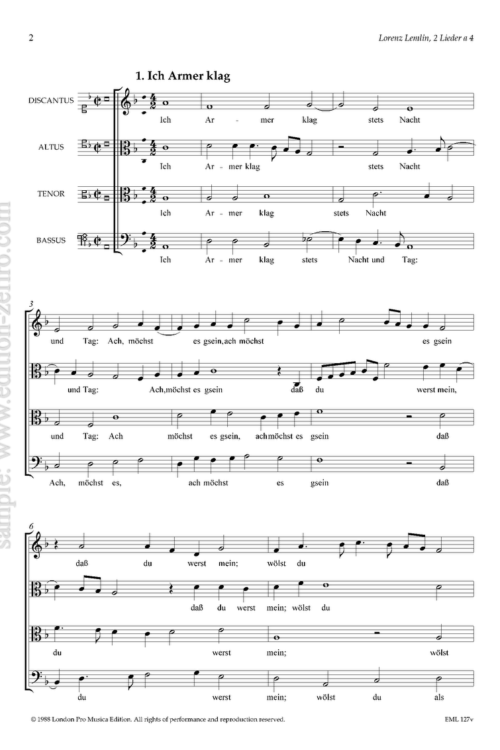Andrea Gabrieli’s Dialogo “Tirsi morir volea” is one of three 7-part madrigals printed after the Concerti di Giovanni e Andrea Gabrieli, (Venice 1586).
The poem set here is by Battista Guarini of Ferrara, who died in 1612; one of the more important contributors of madrigal verse, he also produced the famous comedy, Il pastor fido is one of the most frequently set poems in the late Italian madrigal repertoire, with around twenty surviving settings by Marenzio and others. It is a highly erotic poem, which deeply shocked the madrigal specialist Alfred Einstein (1880-1952) (wikipedia), throwing him into outraged ecstasy over its supposed obscenity. What Mr. Einstein was doing studying Italian madrigals if he was so easily disturbed by a bit of harmless eroticism is a mystery: he should perhaps have switched his attention to Victorian hymns.
(Bernard Thomas)
Translation:
Tirsis was wanting to die,
Marvelling at the eyes of her whom he adores:
When she, who burned for him no less,
Said to him: “Alas, my love,
No, do not die yet,
For I also desire to die with you.”
Tiris controlled the desire
That he had to finish his life;
But he was feeling death in not being able to die.
And while he kept his fixed gaze
On the beautiful divine eyes,
And drank the nectar of love,
His lovely nymph, who was already
Aware of the messengers of Love close by,
Said with languid and quivering eyes:
“Die, my heart, for I am dying.”
The shepherd answered her:
“And I also, my life, am dying.”
Thus the fortunate lovers
Died a death so sweet, so desirable,
That in order to die again they returned to life.


